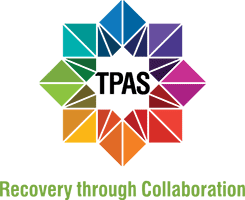
by Asheville Community Program’s Clinical Director, Lissa Carter MA, NCC, LCAS, LCMHC
Decision making takes a tremendous amount of mental energy. Once a routine becomes habit, we no longer have to think about it. This means that a great deal of mental energy is liberated by deciding to implement a daily habit. Unfortunately a “resolution” is a thought, not an action, so resolving to do something doesn’t necessarily provide that relief of taking the decision off the table.
Small changes equal big impact
For most of us, committing to a bite-sized action every day feels simultaneously less ambitious and more possible than keeping a “resolution”. If we are acting every day in alignment with our values, the mental health benefits are profound. Self-efficacy (believing that we can do the things we set out to do) increases when we set ourselves small, repetitive, attainable goals. When we are showing up in the world in the way that we want to, we feel better about ourselves. Small changes like this compound over time.
One thing leads to another
I had a client once who had tried to quit drinking cold turkey every January. Despite her resolve, she was never able to adhere to this plan. We decided instead to make a small, committed action that was a move towards the life she wanted to live, rather than a move away from alcohol. When we dug down to the reason she wanted to quit drinking in the first place, it had to do with her desire to be more present with her family. So she committed to spending five minutes daily coming up with (and then asking) a meaningful question in conversation with a family member.
Not only was she able to stick to this commitment and witness an increase in the depth and warmth of her connection with her children and spouse, but she noticed a decline in her drinking that happened naturally. When she reflected on this change, she identified that it had to do with feeling more involved with (and happier in) her relationships. Feeling more connected with the people she loved meant that she had fewer difficult feelings that prompted her to drink.
Learning to ‘loop’
The psychology behind habit formation has to do with “loops” of behavior—behaviors that lead to positive consequences tend to get stronger and behaviors that lead to negative consequences tend to weaken. In my client’s case, when she tried to quit drinking, the loop looked like this: have a bad feeling-> think about having a drink ->tell self not to have a drink-> feel original bad feeling plus pain of not getting to self-medicate ->feel even worse -> eventually drink. Her behavior of abstaining from drinking led to bad feelings, so that behavior weakened and eventually she resumed drinking. When she implemented the small committed actions instead, the loop looked like this: ask a meaningful question-> feel connected -> feel more excited to develop and ask meaningful questions.
Because her behavior of asking meaningful questions was rewarded with feelings of warmth and connection, that behavior was reinforced and grew stronger every day. Once that habit was established, it was easy for my client to ask meaningful questions even when she was feeling sad, or angry, or disconnected, because the habit loop had grown so strong. Dr. Jud Brewer has written a great deal about the science behind this. His book Unwinding Anxiety is one I often recommend to my clients. If you’d like more information on this comment, this book would be an ideal place to start.
‘Reinforcement learning isn’t based on the behavior itself, it’s based on how rewarding the behavior is. To break a bad habit, you need to become aware of your habit loops and their results’
-Jud Brewer









